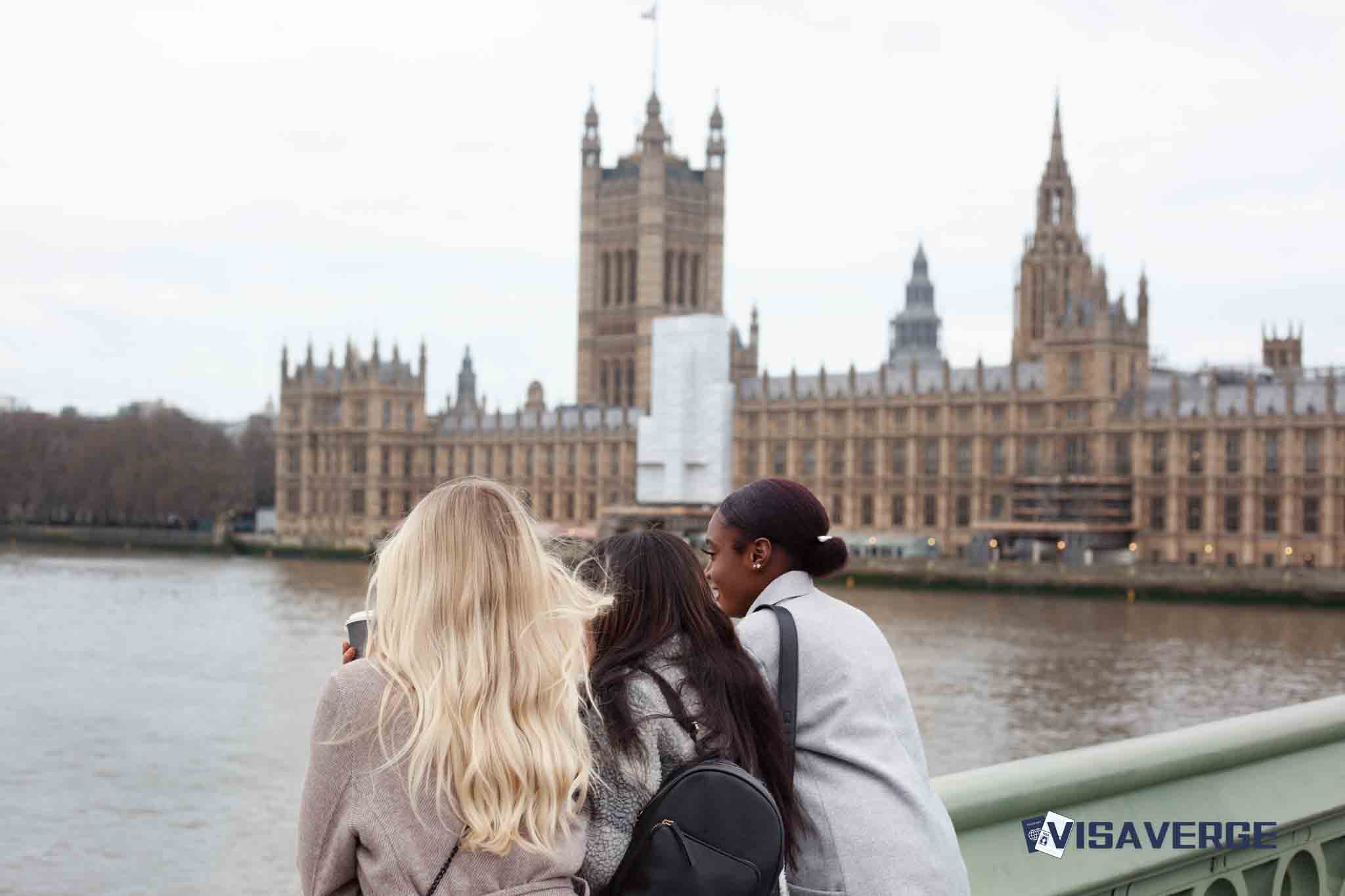Key Takeaways
• USCIS policy requires refugee marriages be legally valid and documented starting March 3, 2025.
• Informal or unregistered religious/traditional marriages no longer qualify for immigration benefits.
• Policy applies retroactively to pending and new petitions filed on or after March 3, 2025.
The United States 🇺🇸 Citizenship and Immigration Services (USCIS) has introduced a major policy update affecting how marriages between refugees or asylees and their spouses are recognized for immigration benefits. This analysis examines the purpose and scope of the new guidance, the methodology behind its implementation, key findings, relevant data, and the broader implications for affected individuals and stakeholders. The content also presents visual descriptions, comparisons with past practices, and evidence-based conclusions, while noting limitations and areas for future development.

Purpose and Scope of the Policy Update
The main purpose of the new USCIS guidance is to clarify and standardize the rules for recognizing marriages between principal refugees or asylees and their spouses when applying for immigration benefits. The policy, effective March 3, 2025, requires that all such marriages must be legally valid under the law of the country or jurisdiction where the marriage took place. This means only marriages that are officially registered and documented will be accepted for immigration purposes.
The scope of this policy is broad. It applies to all requests for immigration benefits based on refugee marriages or asylee marriages that are pending or filed on or after March 3, 2025. The update affects both new and ongoing cases, and it rescinds previous policies that allowed some informal or unregistered marriages to be recognized, especially in situations where formal marriage registration was not possible due to conflict or instability.
Methodology: How the Policy Will Be Implemented
The updated policy is detailed in the USCIS Policy Manual, Volume 4, and follows a clear step-by-step process for determining the validity of refugee marriages and asylee marriages for immigration benefits:
- Marriage Verification:
USCIS will check if the marriage is legally valid under the law of the place where it was celebrated. This means the marriage must meet all legal requirements of that country or jurisdiction. -
Documentation Requirement:
Applicants must provide official proof of the marriage, such as a marriage certificate issued by the proper civil authority. Religious or traditional ceremonies without legal registration will not be enough. -
Adjudication:
USCIS officers will use the updated standards to decide if the applicant qualifies for derivative spouse status or other immigration benefits. -
Denial or Request for Evidence (RFE):
If the marriage is not legally valid or lacks proper documentation, USCIS may deny the benefit or send a Request for Evidence asking for more proof. -
Appeals or Motions:
If an application is denied, the applicant can appeal or file a motion to reopen or reconsider. However, the legal validity requirement must still be met.
This process is designed to ensure that only marriages recognized by law are used to claim immigration benefits, reducing the risk of fraud and bringing USCIS practice in line with Board of Immigration Appeals (BIA) case law.
Key Findings and Immediate Impacts
1. Stricter Documentation Requirements:
Only marriages that are legally valid and documented according to the law of the place where the marriage happened will be accepted for immigration benefits. This includes derivative status for spouses of refugees and asylees.
2. End of Recognition for Informal Marriages:
Religious, traditional, or customary marriages that are not legally registered will no longer be recognized for immigration purposes. This is a significant change from past practice, where some flexibility was allowed.
3. Retroactive Application:
The policy applies to all pending or new cases filed on or after March 3, 2025. This means some cases already in process may be affected if they do not meet the new requirements.
4. Alignment with Executive Orders:
The update is consistent with President Biden’s Executive Orders 14148 and 14163, which aim to realign refugee admissions and immigration policy with current law and standards.
5. Stakeholder Concerns:
Refugee advocacy groups and immigration attorneys have raised concerns that the policy could harm vulnerable populations who may have trouble getting formal marriage documents due to conditions in their home countries or countries of first asylum.
Data Presentation and Visual Descriptions
While USCIS has not released specific numbers on how many cases will be affected, it is estimated that thousands of refugees and asylees apply each year to sponsor spouses under derivative status. The policy’s retroactive application means that a significant number of ongoing cases could be impacted immediately.
Visual Description:
Imagine a flowchart showing the new process:
- Start: Refugee or asylee files a petition for a spouse.
- Step 1: USCIS checks if the marriage is legally valid under local law.
- Step 2: Applicant submits official marriage certificate.
- Step 3: USCIS reviews documentation.
- If valid, the case moves forward.
- If not valid or missing, USCIS issues a denial or RFE.
- End: Applicant can appeal, but must still meet the legal validity rule.
This visual process highlights the importance of documentation and the clear decision points under the new policy.
Comparisons, Trends, and Patterns
Historical Practice:
In the past, USCIS sometimes accepted informal or customary marriages, especially for refugees and asylees from countries where formal marriage registration was difficult or impossible. This flexibility was meant to help people fleeing conflict or living in unstable conditions.
New Trend:
The updated policy marks a shift toward stricter enforcement of legal standards. Now, only marriages that are officially registered and recognized by the local government will be accepted. This change is part of a broader trend at USCIS to tighten eligibility for immigration benefits and reduce the risk of fraud.
Pattern:
The move aligns with recent executive orders and BIA case law, showing a pattern of bringing agency practice in line with established legal standards and reducing exceptions.
Evidence-Based Conclusions
1. Consistency and Integrity:
The policy update brings consistency to how USCIS handles refugee marriages and asylee marriages, ensuring that all cases are judged by the same legal standard. This helps protect the integrity of the immigration system.
2. Potential Barriers for Vulnerable Groups:
While the policy aims to reduce fraud, it may create barriers for refugees and asylees from countries where getting a legal marriage certificate is very difficult or impossible. These individuals may now be unable to sponsor their spouses for immigration benefits, even if their marriages are genuine.
3. Legal Alignment:
By following the “place-of-celebration” rule and BIA precedent, USCIS is making its policies more predictable and legally sound. This can help reduce confusion and inconsistent decisions.
4. Need for Outreach and Support:
Given the challenges some applicants may face, there is a need for clear guidance and support to help refugees and asylees understand the new requirements and gather the necessary documents.
Limitations and Areas for Further Development
1. Lack of Data:
USCIS has not provided detailed statistics on how many people will be affected by the change. This makes it hard to measure the full impact.
2. Documentation Challenges:
The policy does not address what happens if a country’s civil registration system is not working or does not exist. There may be a need for exceptions or alternative forms of proof in these cases.
3. Potential for Litigation:
Advocacy groups may challenge the policy in court, especially if it is seen as unfairly harming vulnerable populations.
4. Public Feedback:
USCIS is accepting public comments on the policy until July 24, 2025. The agency may revise the policy based on this feedback, but it is not clear what changes, if any, will be made.
Stakeholder Perspectives
USCIS Leadership:
Officials say the update is needed to ensure consistency with immigration law and to prevent fraud. They argue that clear, uniform standards are important for the integrity of the system.
Refugee Advocacy Groups:
Advocates worry that the policy could keep families apart, especially for refugees and asylees who cannot get legal marriage documents. They call for more flexibility and alternative ways to prove genuine marriages.
Immigration Attorneys:
Lawyers note that the policy brings USCIS in line with BIA case law, but they also warn that it could create new hurdles for clients from conflict zones.
Policy Analysts:
Experts see the update as part of a larger effort to tighten immigration benefit eligibility and align with recent executive orders.
Practical Guidance for Affected Individuals
If you are a refugee or asylee seeking to sponsor your spouse for immigration benefits, here are the steps you should take under the new policy:
- Check Local Marriage Laws:
Make sure your marriage is legally valid under the law of the country or jurisdiction where it took place. -
Obtain Official Documentation:
Get a marriage certificate or other official proof from the proper civil authority. Religious or traditional ceremonies are not enough unless they are also legally registered. -
Prepare for USCIS Review:
Be ready to submit your documents to USCIS. If you cannot get official proof, consider seeking legal advice or contacting a refugee support organization for help. -
Respond Promptly to RFEs:
If USCIS asks for more evidence, respond quickly and provide as much documentation as possible. -
Know Your Appeal Rights:
If your application is denied, you can appeal or file a motion to reopen or reconsider, but you must still meet the legal validity requirement.
For more information on the official policy update, visit the USCIS Policy Manual update and alert.
Official Resources and Contact Information
- USCIS Policy Manual Update:
USCIS Policy Manual update and alert -
Full Policy Manual Update PDF:
USCIS Policy Manual Update PDF -
USCIS Contact Center:
1-800-375-5283 (TTY 1-800-767-1833) -
Public Feedback Submission:
Details are available on the USCIS website under policy alerts and public comments.
Conclusion and Next Steps
The new USCIS policy on the validity of refugee marriages and asylee marriages for immigration benefits marks a significant shift toward stricter legal standards and documentation requirements. While the update brings consistency and aligns with legal precedent, it also raises concerns about access for vulnerable populations. As reported by VisaVerge.com, the policy’s impact will depend on how USCIS implements the rules and whether exceptions or alternative forms of proof are allowed for those who cannot obtain official documents.
Affected individuals should act quickly to gather the required documentation and seek help if needed. Stakeholders are encouraged to provide feedback to USCIS before the July 24, 2025 deadline. Ongoing monitoring and possible future changes will shape how this policy affects refugees, asylees, and their families in the years ahead.
For the most current information, always refer to the official USCIS website and consult with qualified immigration professionals.
Learn Today
USCIS → U.S. Citizenship and Immigration Services, government agency managing immigration and naturalization.
Derivative Spouse Status → Immigration status granted to spouses of principal refugees or asylees.
Request for Evidence (RFE) → USCIS request for additional proof to support an immigration application.
Board of Immigration Appeals (BIA) → Federal body reviewing immigration case decisions and policies.
Place-of-Celebration Rule → Legal standard recognizing marriages based on the law of the marriage location.
This Article in a Nutshell
USCIS updated its refugee marriage policy, enforcing strict legal validity and documentation from March 2025. Informal marriages lose recognition, impacting thousands of applicants and aligning with Biden executive orders, but raising challenges for refugees lacking formal proofs.
— By VisaVerge.com








